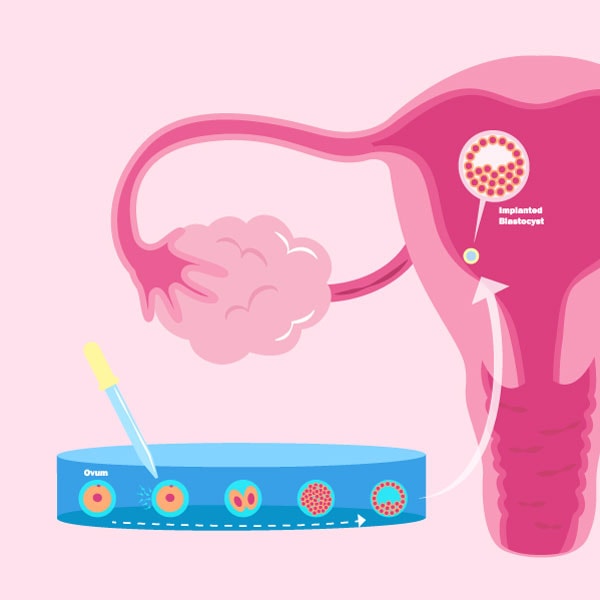Artificial insemination with donor sperm
To overcome infertility problems and achieve pregnancy, many couples worldwide resort to artificial insemination with donor sperm. This treatment at Inser will help many couples achieve their desired pregnancy.

What is artificial insemination with donor sperm?
Artificial insemination with donor semen consists of obtaining a semen sample from a sperm bank to insert it into the woman’s reproductive system at ovulation.
Who should go to artificial insemination with donor sperm?
Couples with a severe male infertility factor, such as the total absence of sperm during ejaculation (azoospermia) or when the man has a genetic disease he does not want to transmit to his descendants.
When there is no sperm in the man’s ejaculation, another option is to do a testicle biopsy and use the sperm obtained in an ICSI treatment.
How to prepare before artificial insemination with donor sperm?
The woman or partner who wishes for sperm donation attends an initial interview with one of the gynecologists, who, in addition to providing information about the sperm donation process, performs a complete medical evaluation of the couple to evaluate their health. For insemination to be successful, the uterus and Fallopian tubes should be normal; otherwise, they should be treated for the procedure to take place.
If an evaluation of the male factor is required, the man is referred to the urologist to complete the studies and possible management. Additionally, laboratory tests are needed for HIV, Hepatitis B and C, and blood groups.
It is also crucial for the couple to attend a psychological evaluation to prepare them for the donation process and to identify areas of potential conflict.
How is artificial insemination performed with donor semen?
The artificial insemination procedure involves the introduction of spermatozoa into the woman’s reproductive system (the introduction of spermatozoa into the uterine cavity) at the time of ovulation.
In natural fertilization, sperm is deposited in the vagina during sexual intercourse. Only a low portion of the sperm penetrates the uterus and reaches the Fallopian tubes, where the ovum is fertilized.
In artificial insemination, on the other hand, the semen sample is taken to the laboratory where, utilizing several specialized processes, the sperm with the most significant potential of fertilization is selected, which will then be inserted deep into the uterus.
What probability of pregnancy does this treatment have?
The probability of pregnancy per cycle initiated is around 20 to 25% if there are no other infertility factors. With repeated cycles, the cumulative percentage of pregnancy is 70%.
If you need more information about this treatment.
Contact us in our lines:
- Medellín: +57(4) 268 80 00
- Bogotá: +57(1) 746 98 69
- Cartagena: +57(5) 693 04 34
- Pereira: +57(6) 340 17 09
- Whatsapp: +57 316 3033866




